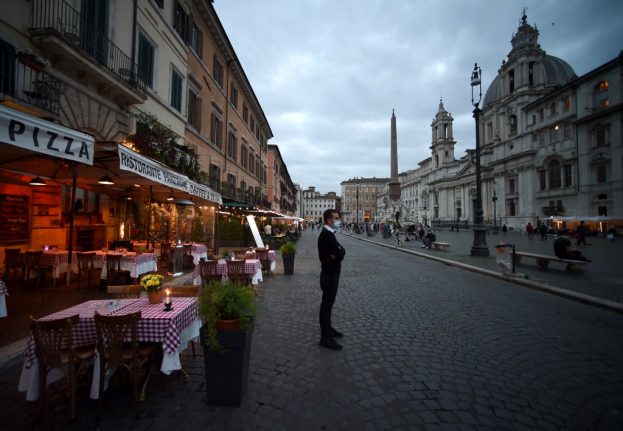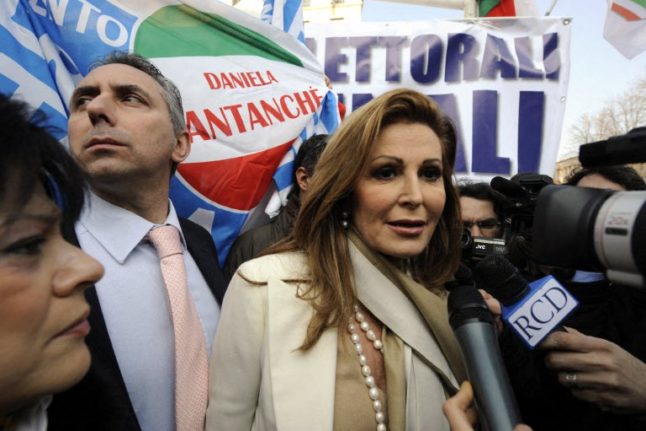The localised restrictions mean that the rules vary drastically from one part of Italy to the next, with some cities, provinces and even entire regions under curfew and others with no limits on movement.
Here's a look at where the rules are strictest across Italy.
This information was last updated on October 26th.
Campania
Despite recording a relatively low number of cases in the first wave of the pandemic, Campania has been badly hit by the autumn surge.
Now the southern region has reimposed restrictions on movement that haven't been seen since Italy began phasing out its lockdown in May.
They include:
- Residents are ordered not to leave their own province except for work, health reasons, family necessity or other emergencies;
- Nightly curfew between 11pm and 5 am;
- Primary and secondary schools closed until at least October 31st;
- Universities closed until further notice;
- Jogging in busy areas (city centres, parks, seafronts) is only allowed between 6 and 8:30 am.
The restrictions, the toughest in Italy to date, have already caused unrest in Campania's largest city, Naples, where hundreds of protesters defied the curfew over the weekend in frustration at further blows to businesses and curbs on freedom.
READ ALSO: The form you need to go out at night under one of Italy's regional curfews

Police on patrol in Milan, Lombardy. Photo: Miguel Medina/AFP
Lombardy
After reporting the highest number of new infections of any region for several days straight, Lombardy became the first to enforce a nighttime curfew.
Between the hours of 11pm and 5am residents should only leave home at night for reasons of work, health or necessity, and can be asked by police to produce a self-certification form justifying why they're on the street.
The curfew is effective until at least November 13th.
IN PHOTOS: Milan deserted as Italy's first curfew begins
Lombardy has also urged secondary schools to go remote from October 26th if they can, and if not to make arrangements to do so as soon as possible.
Shopping centres and large stores – other than those selling food – have been ordered shut on weekends too, while drinking alcohol in public is also banned.
Lazio
The region that includes Rome has declared a curfew at night for the next 30 days.
The restriction will apply between midnight and 5am, starting from October 23rd.
?? Lazio is set to declare a Covid-19 curfew from midnight to 5am, after the regions of Lombardy and Campania introduced similar restrictions.
That means all three of Italy's biggest cities – Rome, Milan and Naples – will be locked down at night.https://t.co/uUn7Iedu58
— Jessica Phelan (@JessicaLPhelan) October 21, 2020
Anyone found out during those hours without a valid reason will face fines of €400 to €3,000.
In addition the city of Rome has declared certain parts of the city no-go zones after 9pm. Streets and squares famed for nightlife, including piazza Campo dei Fiori and via del Pigneto, will be blocked off even before the nightly curfew starts to avoid crowding.
Piedmont
The region has declared a curfew from 11pm to 5am, starting Monday, October 26th until November 13th.
Meanwhile the region has told shopping centres and megastores to close on Saturdays and Sundays, while all shops except pharmacies must shut by midnight every night.
Calabria
Calabria is under curfew from midnight to 5am, starting October 24th until November 13th.
The region has also suspended all in-person classes in secondary schools from October 26th until November 13th. Universities are closed until November 24th.
Sicily
The island has set a curfew from 11pm until 5am, until at least November 13th.
The region also closed high schools until further notice, starting from October 26th.
Five municipalities – Sambuca, Mezzojuso, Galati Mamertino, Randazzo and Torretta – have further been declared 'red zones' and are under local lockdown, with all non-essential businesses closed and residents ordered to stay at home.
Trentino-Alto Adige
The province of Bolzano (Alto Adige/South Tyrol), one of the region's two autonomous provinces, has declared a curfew from 11pm to 5am. The restriction applies until November 24th.
But in other respects the province has used its special status to loosen some of the rules in place in the rest of Italy, allowing bars and restaurants to stay open until 8pm and 10pm respectively instead of 6pm, and letting schools teach 50 percent of classes in person instead of just 25 percent.
Meanwhile both Trentino and Alto Adige have cancelled their famous Christmas markets, which typically attract thousands of tourists each year.
Abruzzo
Abruzzo has ordered high schools and universities to close until further notice, but has not added any restrictions on movement.
Find all The Local's latest coronavirus updates here.



 Please whitelist us to continue reading.
Please whitelist us to continue reading.
In Piemonte, also fair (notably, now, the weekend truffle sagre) have been cancelled.